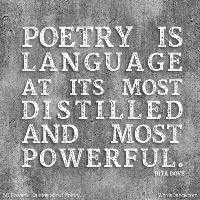Home »
Posts tagged Hermeneutics (Page 2)
In recent blogs[1], I’ve been considering the alluring and powerfully theological type-scene “Foreigner at the Well.” It is common for people to develop in their entertainment of any form typical scenarios drawn from their own “way of life” which the community recognizes, anticipating their outcomes, and finding great...
Continue reading
April 4, 2018 Andrew Sargent
101 Most Misunderstood Verses, Biblical Language Issues, Biblical Studies, Biblical Theology, HAGALAH, Old Testament Studies
In my recent post, “Wells: The Singles’ Bars of the Ancient Near East,”—I just call ‘em like I see ‘em Folks! Don’t judge me—I discussed the beauty of the ancient type-scene, “Foreigner at the Well.” We discussed how every culture has popular literary scenarios drawn from elements of...
Continue reading
March 30, 2018 Andrew Sargent
101 Most Misunderstood Verses, Biblical Studies, Biblical Theology, HAGALAH, Old Testament Studies
No Comment
One of my great-uncles, a true good-ol’boy from west Texas, once said to my great-grandmother, “Mamma, it’s hard to find a good woman like you out there.” She replied, “There are plenty of good women like me out there. They just don’t hang out in the places you...
Continue reading
March 28, 2018 Andrew Sargent
101 Most Misunderstood Verses, Bible Backgrounds, Biblical Studies, Biblical Theology, Old Testament Studies
No Comment
After discussing, in my recent blog post, “Hallelujah is a Sentence,” that the biblical “term” Hallelujah has grammar and that we should both be aware of that grammar and use the phrase accordingly in our worship songs, I received two types of criticism. Let’s call them sniveling and...
Continue reading
March 12, 2018 Andrew Sargent
101 Most Misunderstood Verses, Bible Backgrounds, Biblical Language Issues, Biblical Studies, NT's Use of the OT, Old Testament Studies
No Comment
How hard could it possibly be to find agreement on the meaning of a phrase as simple as biblical theology? In truth… harder than I’d like. Biblical theology is not, after all, merely theological ideas that are “biblical,” and the history of the phrase biblical theology is, unfortunately,...
Continue reading
December 8, 2017 Andrew Sargent
Biblical Theology, HAGALAH, Inductive Study Methods, Theology
No Comment
At the risk of sounding like a petulant child… well, a petulant child that complains about the frequent misuse of ancient Hebrew in weekly church services…. Which now that I think about it isn’t really childish at all…. Okay, so… at the risk of sounding like a scholarly...
Continue reading
August 11, 2017 Andrew Sargent
101 Most Misunderstood Verses, Biblical Language Issues, Biblical Studies, New Testament Studies, Old Testament Studies
Communication at its most basic is the use of symbols to affect the understanding of another. The symbols at a communicator’s disposal are both verbal and non-verbal. Verbal tools are spoken & heard symbols that represent ideas. Non-verbal tools are unspoken symbols that represent ideas. Phonology—uses words (individual...
Continue reading
July 14, 2017 Andrew Sargent
Biblical Language Issues, Biblical Studies, Communication, HAGALAH
No Comment
Let’s be honest, when you understand what communication is at its roots, you’ll realize that you cannot avoid miscommunication… not altogether. It takes two to tango (That’s what my betters say, anyway… personally, I’m more of a Bugs Bunny Square Dance sort of fella’) and communication requires both...
Continue reading
July 5, 2017 Andrew Sargent
Communication
No Comment
A centipede was happy – quite! Until a toad in fun Said, “Pray, which leg moves after which?” This raised her doubts to such a pitch, She fell exhausted in the ditch Not knowing how to run. (Katherine Craster (1841-74) A spider met a centipede while hurrying down...
Continue reading
June 26, 2017 Andrew Sargent
Communication
No Comment
When I passed inspection for receiving my ministerial license, the individual responsible for my review spread out, like a row of piano keys, the many pages of answers I gave to the theological questions I was asked to address in the process. He ummm-ed a bit, scratched his...
Continue reading
June 21, 2017 Andrew Sargent
Biblical Theology, Theology
No Comment
Poetry, by definition, is usually regarded as distinct from another category of writing called Prose. To express it simply, Prose is normal writing. It reflects the speech patterns of typical daily conversation, even if a bit more planned and carefully refined. Poetry then is an alternate way of...
Continue reading
June 19, 2017 Andrew Sargent
Biblical Language Issues, Biblical Studies, Inductive Study Methods, Old Testament Studies
I love puzzles, always have. Growing up, I saw puzzles of all kinds as a natural exercise of my desire to be a detective someday, tracing out subtle clues to help me zero in on bad guys. Becoming a biblical scholar, then, has always seemed right on target...
Continue reading
January 18, 2017 Andrew Sargent
101 Most Misunderstood Verses, Bible Backgrounds, Biblical Studies, Biblical Theology, HAGALAH, New Testament Studies, NT's Use of the OT, Old Testament Studies
No Comment
Let’s consider three different translations for 1 Thessalonians 4:4 in context. Paul uses a figure of speech that has many people scratching their heads. The King James takes a rather literal approach. 1 Thessalonians 4:3-6 reads: For this is the will of God, even your sanctification, that ye...
Continue reading
June 20, 2016 Andrew Sargent
101 Most Misunderstood Verses, Bible Backgrounds, Biblical Language Issues, HAGALAH, Inductive Study Methods, New Testament Studies
No Comment
Today we have a guest Blogger. John Donnelly, Biblical Literacy Ministries Educator, Church Planter, Part-year missionary to India. John has a Master’s in Old Testament Studies from Gordon-Conwell Theological Seminary and a Masters degree in New Testament studies from the same. So here he is on “The Unseemly Assumptions about...
Continue reading
April 25, 2016 Andrew Sargent
101 Most Misunderstood Verses, Bible Backgrounds, Biblical Language Issues, Biblical Studies, Biblical Theology, HAGALAH, Inductive Study Methods, Old Testament Studies
No Comment
It is a complex world with complex problems. The desire for sure answers and ethical certainty in my own religious community has not, however, historically, driven them to examine issues, nor to contemplate the methods and principles by which one might do so. It has, rather, driven them...
Continue reading
April 22, 2016 Andrew Sargent
Society
No Comment
Since we live in a contractual world, not a covenantal world, a crash course in biblical era covenant cutting is in order. Now, don’t get me wrong, we still have the tattered remnants of covenant making in our modern western societies, but it mostly resembles the scattered debris...
Continue reading
April 11, 2016 Andrew Sargent
Bible Backgrounds, Biblical Theology, Old Testament Studies
No Comment
John 14:13 says “Whatever you ask in my name, this I will do…” I have to admit, I find this very exciting… No, dizzying! A Jet Ski! I’ve always wanted a Jet Ski and a house by a lake so that I can ride it around whenever I...
Continue reading
March 9, 2016 Andrew Sargent
101 Most Misunderstood Verses, Biblical Studies, Biblical Theology, New Testament Studies
No Comment
Some words require a serious amount of cultural packaging to define… (A Technical Term is not just a different Word; it’s a different World.) …such as our past discussion on the importance of Ancient Near Eastern war runners for understanding the meaning of Gospel.[1] Other words, however, give...
Continue reading
March 7, 2016 Andrew Sargent
Biblical Language Issues, Biblical Theology, Communication, Inductive Study Methods, Meeting the Jesus of Mark, New Testament Studies
No Comment
Words have a lot more than just a definition. Words have associations. Words have rich emotional content. That emotional content is a powerful tool in communication. Choosing the right word at the right time can take a sentence from blah to TADAH!!!! And just to prove that I...
Continue reading
March 4, 2016 Andrew Sargent
Communication, Society
No Comment
Okay, call me old school, tell me that I just don’t get what today’s busy Christian wants from his leaders, but I am a tad concerned about a growing trend in leadership studies—too much fixation on methodology and attitudes for leading and not enough on the importance of...
Continue reading
February 19, 2016 Andrew Sargent
Communication, Society















